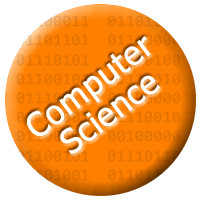
Taking A Level Computer Science
Two most important questions
Can I study A level computer science if I have not studied it at GCSE?
Many students ask this question. The answer is always ‘yes… but…’. Computer Science requires a lot of programming - it's one of the reasons we insist on a grade 6 in maths or a grade 6 in computer science. If you don’t like programming, you will hate it. There is also quite a bit of complex theory and those who study at GCSE will have a basic understanding of most of it. To be brutally honest, most of the students who have taken computer science after not studying at GCSE have found it a step too far and have not achieved as they would have expected. If you want to be successful, it would be a good idea to prepare a little first, both in terms of programming and theory.
What can I do to prepare for A level computer science?
The most useful way of preparing would be to improve your skills in programming. Understanding how programming works will help to make everything else in the course make sense. It is also best learnt independently, unlike theory. The programming language we use to create software is C#, with a bit of HTML, CSS and JavaScript for web development. Any work you can do in these would be very beneficial. Below are some links that will be useful:
- Installing/using C#
- Visual Studio Community (2022 was the most recent release) is free and an excellent IDE. Dotnetfiddle is an excellent browser based environment, but is console only.
- Unity - not recommended unless you are already a confident programmer.
- Learning C#
- www.robmiles.com - C# Programming Yellow Book (guides, reference and challenges). Very good - read and follow this if you want to be an amazing programmer
- www.learncs.org - For learning C#. Good for basics
- www.hartismere.com/23737 - C# essential reference library
- How much C# you should know
- www.hartismere.com/23218 - Essential C# knowledge required to be comfortable
- Ideas for things to make in C#
- www.hartismere.com/23382 - Coding challenges
- Learning web page development
- www.codecademy.com - HTML and CSS
- www.w3schools.com - HTML, CSS and JavaScript reference library, tutorials and quizzes. I use this for reference when creating web pages.
- Catching up/revision of theory knowledge
- For catching up on theory, I recommend the BBC Bitesize pages, Seneca learning or Isaac Computer Science.
In this section...
A Level CS: Algorithm Assembly Instructions
Explore...
Candidate Information - Coursework Assessments
New...
Teacher of Business Studies & Economics
Discover...
Robmiles.Com Student Information A Level A Level CS GCSE Computer Science GCSE CS Jobs GCSE Computing Personal Development LMC Private Study The Wave Theory C# Recipes A Levels Parent Information Results Trips Dracula Quizlet Python Year 9 Options
Uh-oh - we were unable to load our website on your browser so we're showing you a plain HTML version.
We use many features found in modern browsers and regrettably yours seems incompatible.
However this legacy version contains (very, very nearly) all the same content. Each page is rendered on our server and doesn't rely on any browser features except the odd font. It doesn't even need Javascript or fancy CSS. It's like being in 1995!
Your browser is reporting itself to us as Mozilla/5.0 AppleWebKit/537.36 (KHTML, like Gecko; compatible; ClaudeBot/1.0; +claudebot@anthropic.com). Please consider updating your browser to make the most of our website.
If you would like to try our proper website again - you can do so here...
